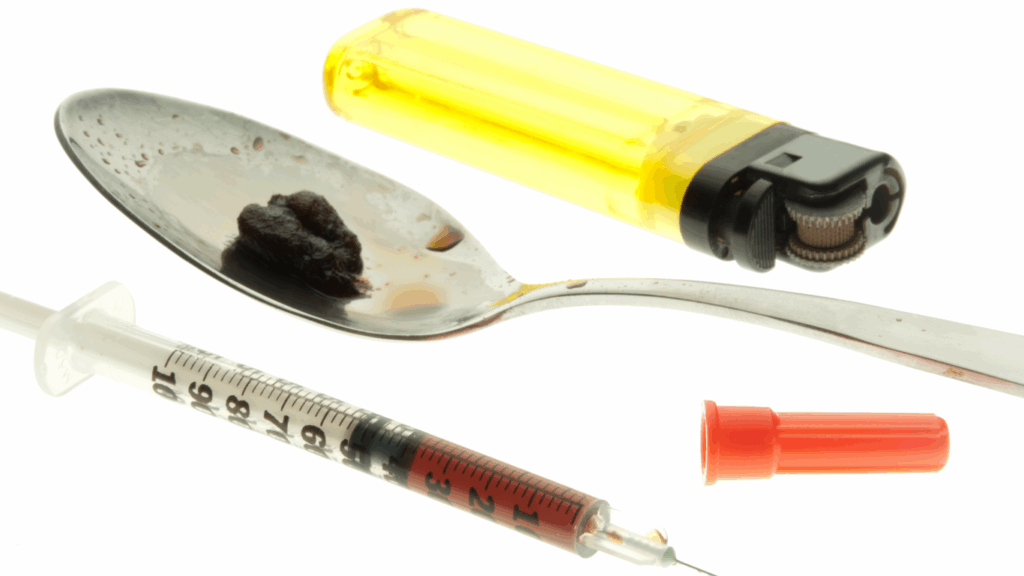Our gender-specific program creates a foundation for sustainable recovery through comprehensive care, expert guidance, and a supportive brotherhood of men walking the same path toward healing.
Understanding the Impact of Heroin in Georgia
Heroin use in Georgia has reached concerning levels in recent years, with devastating consequences for individuals, families, and communities. According to substance abuse statistics in Georgia, heroin-related overdose deaths have increased dramatically, with hundreds of lives lost annually to this powerful opioid.
The Atlanta metropolitan area has seen a significant rise in heroin-related treatment admissions, increasing by 23% in a single year, according to some reports.
This highly addictive opioid, derived from morphine, creates both physical dependency and psychological cravings that make recovery particularly challenging without professional intervention.
What begins as experimentation often rapidly progresses to a life-threatening addiction that requires comprehensive treatment to overcome.

Why Men Need Specialized Addiction Treatment
Men encounter distinct obstacles in overcoming heroin use disorders, but those obstacles are often overlooked in standard treatment programs. Cultural norms expect men to project resilience, independence, and emotional restraint, traits that clash with admitting addiction or seeking support. These societal demands pose substantial hurdles to men’s recovery.
Studies consistently indicate that men use illicit substances more often than women and are at greater risk for emergency room visits and fatal overdoses linked to drug use. Yet, many men find it difficult to discuss their struggles in co-ed settings, where they may feel scrutinized or pressured to uphold an image of toughness.
At Hand in Hand Recovery, we understand these challenges and offer a male-only treatment space where individuals can feel at ease showing vulnerability, discussing tough experiences, and building genuine bonds with peers who relate to their path.

Our Comprehensive Approach to Heroin Treatment
Hand in Hand Recovery Center offers a comprehensive continuum of care for men struggling with heroin addiction. Our approach begins with a thorough assessment to understand each client’s unique circumstances, addiction history, and any co-occurring mental health conditions that may complicate recovery.
Understanding that heroin addiction affects both body and mind, we partner with trusted detoxification facilities to ensure our clients receive proper medical supervision during the withdrawal process. This critical first step manages potentially dangerous withdrawal symptoms while preparing men for the therapeutic work ahead.
Following detox, we offer multiple levels of care to meet men wherever they are in their recovery journey:
Intensive Outpatient Program (IOP)
As men progress in their recovery, our IOP offers a step down in intensity while maintaining substantial therapeutic support. Meeting several days weekly for half-day sessions, this program helps men integrate recovery principles into daily life while still receiving regular professional guidance.
While participating in IOP, our clients may experience services such as:
- Individual Therapy
- Group Therapy
- Family Therapy
- Holistic Treatment
- Medication Management
- Relapse Prevention Training
- And More!
The goal is to ensure every client has a program that meets their needs rather than trying to fit clients into a specific program. No two clients have the same schedule, and this is where we differ from many other programs.
Outpatient Program (OP)
Our standard outpatient program provides ongoing support with less time commitment, allowing men to fully engage with work, education, and family responsibilities while continuing their recovery work. This level of care serves both as a final step in our continuum and as an entry point for men with less severe addiction issues.
Partial Hospitalization Program (PHP)
At Hand in Hand Recovery, we do not offer PHP. However, we work with the best treatment centers in the area that provide this level of care.
PHP is the most intensive level of outpatient care that provides structured daily therapy and support for men who need comprehensive care but don’t require 24-hour supervision. This program typically runs several hours each weekday, providing a solid foundation of recovery skills and support while allowing participants to return home or to a sober living environment each evening.
Evidence-Based and Holistic Treatment Approaches
Recovery from heroin addiction requires addressing not just the substance use itself but the underlying factors that contributed to it. Our approach combines evidence-based therapeutic interventions with holistic healing practices to support whole-person recovery.
Our clinical team employs proven therapeutic modalities such as:
- Cognitive Behavioral Therapy: Helping men identify and change the thought patterns that drive addictive behaviors
- Trauma Therapy: Addressing underlying traumatic experiences that often fuel substance use
- Anger Management: Developing healthy ways to process and express anger without turning to substances
- Family Therapy: Healing damaged relationships and building a supportive home environment
- Medication-Assisted Treatment (MAT): Combining behavioral counseling with medications to address withdrawal symptoms and cravings when appropriate
- Psychoeducation Groups: Provides education on addiction, mental health issues, and more
- Aftercare Planning: We provide our clients with training and outpatient services to help once their program ends
Complementing these clinical approaches, our holistic therapies support physical, emotional, and spiritual healing through:
- Experiential Therapy: Using activities like equine therapy, art therapy, and music therapy to process emotions and build confidence
- Mindfulness Practices: Developing present-moment awareness to manage cravings and emotional triggers
- Life Skills Development: Building practical capabilities for successful independent living in recovery

The Power of Brotherhood in Recovery
One of the most distinctive aspects of our men’s program is the power of male peer support in the recovery process. In our gender-specific environment, men find freedom to express vulnerability without judgment, discuss difficult topics openly, and form authentic connections with others who truly understand their experiences.
Without the pressure to impress or maintain appearances for the opposite sex, men in our program often experience breakthroughs in emotional expression and authentic sharing that might never occur in mixed-gender settings. This brotherhood of recovery creates a foundation of support that extends well beyond the formal treatment period.
Our Expert Clinical Team
Hand in Hand Recovery Center’s treatment team comprises addiction experts with deep expertise in supporting men’s recovery from heroin addiction. Our clinical professionals are highly trained in evidence-based protocols tailored for substance use disorders, with specialized knowledge in opioid and heroin addiction treatment.
Many team members bring a blend of professional qualifications and personal insight, having either overcome their struggles with addiction or guided loved ones through recovery. This fusion of clinical expertise and empathetic understanding fosters a uniquely supportive and impactful treatment experience.
Our staff is adept at crafting personalized treatment plans catering to each client’s needs, acknowledging that every recovery journey is unique. From navigating challenging heroin withdrawal to addressing co-occurring mental health issues, our team delivers expert, compassionate guidance at every step of the recovery process.
Recognizing Heroin Addiction and Seeking Help
Identifying heroin addiction in yourself or a loved one is the critical first step toward recovery. While signs may vary between individuals, common indicators include:
- Physical symptoms: Constricted pupils, drowsiness, needle marks at injection sites, rapid weight loss
- Behavioral changes: Increased secrecy, neglecting responsibilities, financial problems, stealing
- Psychological signs: Mood swings, irritability, euphoria followed by depression, anxiety
- Risk-taking behaviors: Needle sharing, unprotected sex, legal troubles
- Neglected appearance: Poor hygiene, wearing long sleeves regardless of whether to hide injection sites
Long-term heroin use damages physical health, impairs cognitive function, strains relationships, and creates financial hardship. The longer addiction continues, the more challenging recovery becomes and the greater the risk of overdose.
The Journey Beyond Treatment: Building Sustainable Recovery
Recovery from heroin addiction is a lifelong journey that continues well beyond formal treatment. At Hand in Hand, we strongly emphasize comprehensive aftercare planning to support long-term sobriety.
Our aftercare planning includes relapse prevention strategies, ongoing therapy recommendations, community support resources, and connections to sober living options when needed. We help clients develop a personalized roadmap for maintaining recovery while rebuilding their lives.
We remind our clients that recovery isn’t about perfection but progress and persistence. While relapse is a common challenge in heroin recovery, we frame these setbacks as learning opportunities rather than failures, helping men refine their coping strategies and strengthen their commitment to sobriety.
Begin Your Recovery Journey Today
If you or a man you care about is struggling with heroin addiction, know that effective, compassionate help is available at Hand in Hand Recovery Center. Our gender-specific program provides the specialized care, male peer support, and evidence-based treatment needed to overcome heroin addiction and build a fulfilling life in recovery.
The path to freedom from heroin addiction begins with a single step – reaching out for help. Our admissions team is ready to guide you through the process with complete confidentiality and respect. Contact Hand in Hand Recovery Center today at 470-280-2791 to learn more about our programs and begin your journey toward lasting recovery.

 info@handinhandrecovery.com
info@handinhandrecovery.com 3411 Austell Road Suite 200, Marietta, Georgia, United States
3411 Austell Road Suite 200, Marietta, Georgia, United States

